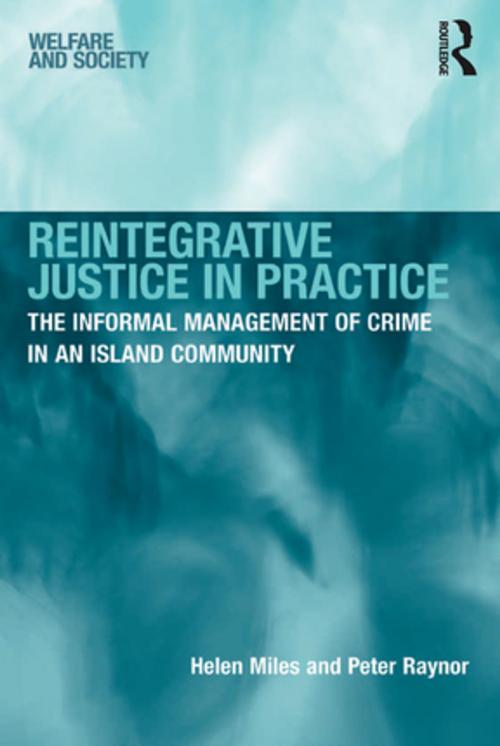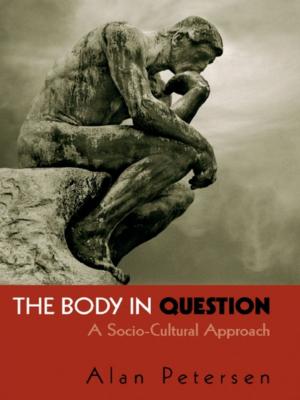Reintegrative Justice in Practice
The Informal Management of Crime in an Island Community
Nonfiction, Social & Cultural Studies, Political Science, Politics, Social Services & Welfare, Social Science, Crimes & Criminals, Criminology| Author: | Helen Miles, Peter Raynor | ISBN: | 9781317068525 |
| Publisher: | Taylor and Francis | Publication: | April 8, 2016 |
| Imprint: | Routledge | Language: | English |
| Author: | Helen Miles, Peter Raynor |
| ISBN: | 9781317068525 |
| Publisher: | Taylor and Francis |
| Publication: | April 8, 2016 |
| Imprint: | Routledge |
| Language: | English |
Recent years have seen the development of a growing international literature on restorative justice, community justice and reintegrative alternatives to formal criminal justice processes. This literature is stronger on theory and advocacy than on detailed evaluative studies. It often relies for its practical examples on the presumed historical practices of the indigenous peoples of colonised territories, or on attempts to revive or promote modified versions of these in a modern context, which has led to debates about how far modern communities can provide a viable setting for such initiatives. This book provides a unique study of the practice of traditional reintegrative community justice in a European society: the Parish Hall Enquiry (PHE) in the Channel Island of Jersey. This is an ancient institution, based on an informal hearing and discussion of a reported offence with the alleged offender and other interested parties, carried out by centeniers (honorary police officers elected to one of Jersey's twelve parishes). It is still in regular use as an integral part of a modern criminal justice system, and it usually aims to resolve offences without recourse to formal prosecution in court. Helen Miles and Peter Raynor's research, arising from direct observation, contributes to the literature on 'what works' in resolving conflicts and influencing offenders, and their detailed case studies of how problems are addressed gives a 'hands on' flavour of the process. The authors also document the aspects of community life in Jersey that facilitate or hinder the continuation of the PHEs, drawing out the implications of these findings for wider debates about the necessary and sufficient social conditions for reintegrative justice to succeed.
Recent years have seen the development of a growing international literature on restorative justice, community justice and reintegrative alternatives to formal criminal justice processes. This literature is stronger on theory and advocacy than on detailed evaluative studies. It often relies for its practical examples on the presumed historical practices of the indigenous peoples of colonised territories, or on attempts to revive or promote modified versions of these in a modern context, which has led to debates about how far modern communities can provide a viable setting for such initiatives. This book provides a unique study of the practice of traditional reintegrative community justice in a European society: the Parish Hall Enquiry (PHE) in the Channel Island of Jersey. This is an ancient institution, based on an informal hearing and discussion of a reported offence with the alleged offender and other interested parties, carried out by centeniers (honorary police officers elected to one of Jersey's twelve parishes). It is still in regular use as an integral part of a modern criminal justice system, and it usually aims to resolve offences without recourse to formal prosecution in court. Helen Miles and Peter Raynor's research, arising from direct observation, contributes to the literature on 'what works' in resolving conflicts and influencing offenders, and their detailed case studies of how problems are addressed gives a 'hands on' flavour of the process. The authors also document the aspects of community life in Jersey that facilitate or hinder the continuation of the PHEs, drawing out the implications of these findings for wider debates about the necessary and sufficient social conditions for reintegrative justice to succeed.















